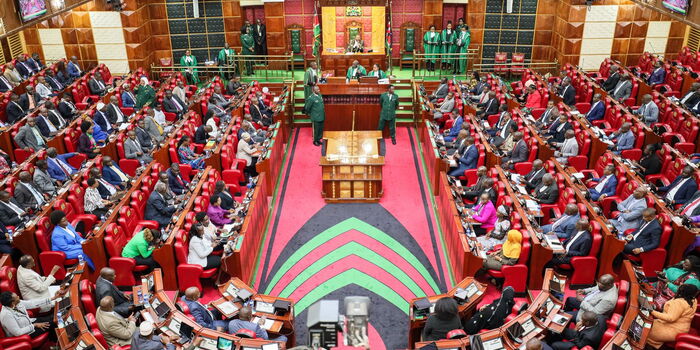Members of Parliament have raised serious concerns about the way the Cooperative Societies Liquidation Fund is being run, especially since it has been operating for years without a Chief Executive Officer (CEO) or a formal board of directors.
The lack of proper leadership and structure has sparked fears over possible mismanagement of billions of shillings meant to protect SACCO members’ savings.
This comes after it was revealed that thousands of retired civil servants—who had faithfully saved through SACCOs during their careers—have not received their dues, leaving them empty-handed despite years of contributions.
During a session held at Parliament Buildings on Tuesday, the Special Funds Accounts Committee summoned officials from the State Department for Co-operatives to explain how the fund is being managed.
The committee, chaired by Migori Woman Representative Fatuma Zainab, ordered the officials to submit all missing audit records to the Auditor-General within 14 days.
Lawmakers were shocked to learn that the SACCO Liquidation Fund, which is supposed to oversee the closure and proper winding up of failed SACCOs, is currently being run informally through the audit section of the Commissioner’s office—with no CEO or governing board in place.
MP Kivasu Nzioka (Mbooni) called for details on how many SACCOs are currently active in the country, while Nyatike MP Tom Odege raised concerns about their sustainability.
He noted that many former civil servants are still waiting for the money they saved for years, pointing to a broken system that has failed its members.
In response, Principal Secretary Patrick Kilemi defended the broader cooperative sector, saying Kenya has over 7,000 financial cooperatives, the highest number in Africa and the sixth largest globally.
He stressed the vital role SACCOs play in the economy, financing around 65 percent of school fees and playing key roles in housing, transport, and investment.
However, PS Kilemi also acknowledged that the current structure of the Liquidation Fund may not legally qualify as a properly constituted fund. “There is a set criteria to establish what qualifies as a fund. This one might not meet that standard,” he admitted.
MPs warned that the lack of a clear leadership and governance structure leaves the fund vulnerable to financial abuse, especially since it is tasked with safeguarding the lifetime savings of thousands of Kenyans.
Digging deeper, the committee discovered that between 2004 and 2012—a span of nine years—the fund did not maintain separate financial records, raising serious accountability concerns. Lawmakers were outraged by the long gap in proper bookkeeping.
Teso South MP Mary Emaase criticized the finance and audit departments, blaming them for failing to submit timely audited reports.
She pointed to poor oversight and a lack of professionalism, saying, “Public money must be properly accounted for. We can’t continue allowing institutions to operate without checks and balances.”
The MPs also raised questions about the Management Supervision Fund, which is supposed to monitor SACCO performance. They noted that only partial records had been submitted, sparking calls for greater openness and accountability.
Committee Chair Fatuma Zainab directed PS Kilemi to ensure that all missing documentation is provided within two weeks. She emphasized the importance of restoring public trust in SACCO oversight, saying, “We must insist on full transparency and protect public funds from misuse.”
The committee is expected to present its findings and recommendations to the National Assembly. This could lead to even deeper scrutiny of SACCO operations across the country, especially amid growing concerns about mismanagement and lack of accountability in cooperative financial institutions.
Join Gen Z New WhatsApp Channel To Stay Updated On time https://whatsapp.com/channel/0029VaWT5gSGufImU8R0DO30


